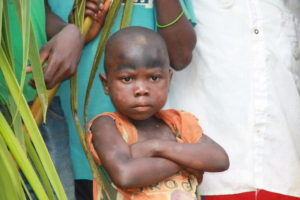Impacts of the Deforestation Crisis in the Congo Basin


Impacts on Local Communities and Neighboring Countries
The deforestation of the Congo Basin significantly impacts local populations that rely on the forest for a living. Many of these local communities rely on the forest for food, water, medicine and income. As deforestation continues, the resources that these communities rely on steadily decrease, resulting in increased poverty and misery.
- Loss of food resources: One of the most immediate repercussions of deforestation is the loss of food resources. The Congo Basin contains diverse food, from plants, fruits and nuts to wild animals, that local communities, containing more than 80 million people, rely on for nourishment. Deforestation disrupts ecosystems’ natural balance, making it more difficult for people to get food, leading to food insecurity and hunger. For many people in the Congo Basin, agriculture alone is insufficient to meet their nutritional needs; therefore, the forest provides an essential additional food supply.
- Lack of access to natural medicines: In addition to food, the forest provides a significant source of traditional remedies. Many regions’ cultures use plants and herbs from the forest to heal various diseases. With the loss of these forests, their access to natural treatments becomes increasingly limited, making it more difficult for the surrounding residents to stay healthy. This dependence on traditional remedies is especially essential in rural regions with limited contemporary health care options.
- Decreased access to economic opportunities: Additionally, deforestation directly impacts the availability of economic activities in these communities. The forest produces many resources, such as timber, which is frequently sold in local markets. As forests are removed, these sources of income disappear, pushing people further into poverty. Furthermore, tree loss causes soil erosion, which makes farming harder, which leads to reduced food production, further deepening the cycle of poverty.
Impacts on the Global Community
One of the main worries regarding deforestation in the Congo Basin is its serious environmental effects, impacting both the local ecosystem and the global climate. The Congo Basin, the second largest rainforest, is the largest carbon sink in the world, with the section of jungle in the Republic of the Congo alone absorbing 1.5% of the entire planet’s carbon emissions.
However, as deforestation occurs, the stored carbon escapes into the atmosphere, leading to global warming and climate instability. Furthermore, the loss of trees disrupts local water cycles, which results in altered rainfall patterns and recurrent floods and droughts. This greatly impacts the region’s biodiversity, putting species that rely on the forest at risk and diminishing the ecosystem’s overall resilience. These environmental consequences are far-reaching, affecting local communities and the world.
Final Remarks
Several initiatives and efforts are taking place to combat the deforestation crisis in the Congo Basin. For example, groups like the Congo Basin Forest Partnership are promoting more and more agroforestry, reforestation and ethical logging. Other programs, such as the African Forest Landscape Restoration Initiative, whose main aim is to restore degraded land, make sure to include residents in their initiatives to highlight the critical role that local communities play.
Although the international community, such as the United Nations and European Union, gives financial and technical aid, stronger policies need to be implemented to guarantee long-term forest preservation.
– Zainab Saad Hassan
Zainab is based in Glasgow, Scotland and focuses on Global Health for The Borgen Project.
Photo: Flickr
